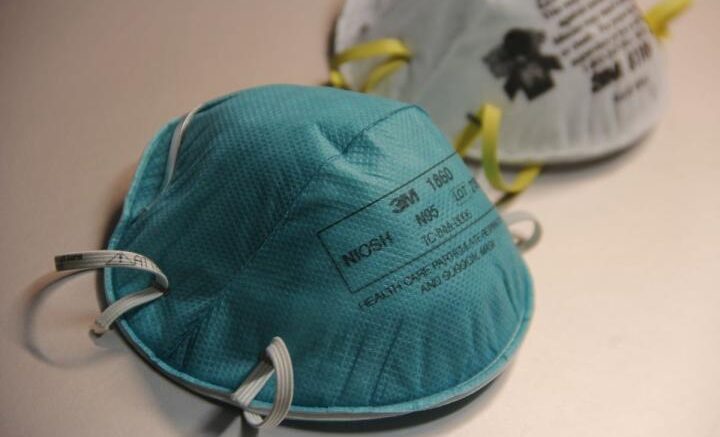The COVID-19 pandemic has severely disrupted supply chains for many types of personal protective equipment (PPE), particularly surgical N95 filtering facepiece respirators. As a consequence, an Emergency Use Authorization (EUA) from the FDA has allowed use of industrial N95 respirators and importation of N95-type masks manufactured to international standards; these include KN95 masks from China and FFP2 masks from the European Union.
Plana, et al. (2021) conducted a survey of masks in the inventory of major academic medical centers in Boston to determine provenance and manufacturer or supplier. They then assembled a testing apparatus at a university laboratory and performed a modified test of filtration performance using KCl and ambient particulate matter on masks from hospital inventories; an accompanying website shows how to build and use the testing apparatus.
More than 100 different makes and models of traditional and nontraditional filtering facepiece respirators (N95-type masks) were in the inventory of surveyed U.S. teaching hospitals, as opposed to two to five models under normal circumstances. A substantial number of unfamiliar masks are from unknown manufacturers. Many are not correctly labeled and do not perform to accepted standards and a subset are obviously dangerous; many of these masks are likely to be counterfeit. Due to the absence of publicly available information on mask suppliers and inconsistent labeling of KN95 masks, it is difficult to distinguish between legitimate and counterfeit products.
Many FFRs available for procurement during the COVID-19 pandemic do not provide levels of fit and filtration similar to those of N95 masks and are not acceptable for use in healthcare settings, say the study authors, who add, "Based on these results, and in consultation with occupational health officers, we make six recommendations to assist end users in acquiring legitimate products. Institutions should always assess masks from non-traditional supply chains by checking their markings and manufacturer information against data provided by NIOSH and the latest FDA EUA. In the absence of verifiable information on the legitimacy of mask source, institutions should consider measuring mask fit and filtration directly. We also make suggestions for regulatory agencies regarding labeling and public disclosure aimed at increasing pandemic resilience."
Reference: Plana D, et al. Assessing the filtration efficiency and regulatory status of N95s and nontraditional filtering face-piece respirators available during the COVID-19 pandemic. BMC Infectious Diseases. Vol. 21, article number 712. 2021.
